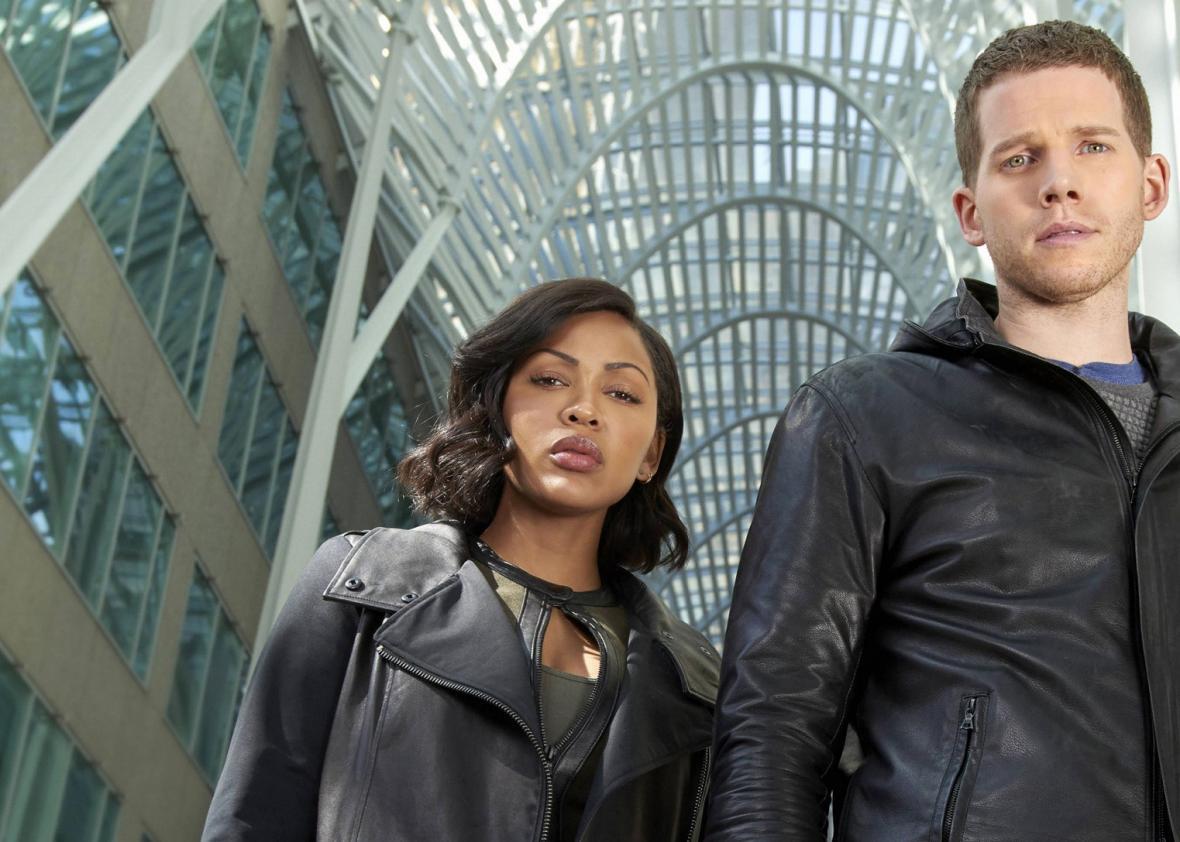If the reboot boom in film and TV continues at its current pace, there will come a time when nearly every single story that can be rebooted, has been—multiple times. Many public domain stories (think Alice in Wonderland) have already been run through the reboot ringer again and again, reimagined from every possible angle. And now, like a harbinger of our infinitely rebooted future, we have the TV version of Minority Report (a sequel to the Tom Cruise movie, loosely based on a short story by Philip K. Dick), which premieres Monday night on Fox.
Minority Report is the consummate Bad Reboot. Its approach to the premise of its source material—that three “precognitive” children have been made into the foundation of a system that allows law enforcement to prevent crimes before they happen and arrest seemingly blameless people—is to reconceive it as an eye-rollingly slick, cookie-cutter cop show about a down-to-earth lady detective (Vega, played by Meagan Good) with a slightly crazy, genius partner (Dash, one of the grown-up precogs, played by Stark Sands). For a show about seeing the future, Minority Report sure feels a lot closer to buried Bones.
But the worst thing about Minority Report—worse than its wooden characters, color-by-numbers subplots, and the simple fact that it’s boring—is that its vision of the future has the exact preoccupations of the present moment. Ads are everywhere, and they include holographic, anthropomorphic weed leaves telling our hero that he should buy some edibles to help him relax. There are “selfie drones.” And, in perhaps the scariest piece of speculative fiction of the century thus far, the songs of Iggy Azalea are considered “oldies” and played on vinyl to indicate the futuristic network procedural version of a chill dinner-cooking environment.
Besides the show’s decided lack of imagination (and its especially dark view of humanity’s collective taste in music), its depiction of the future is legitimately troubling—or would be if it weren’t so boring. All of the defining aspects of Minority Report’s future should scan to us as signs of dystopia. Instead, they’re basically reflections of the way the world is now, complete with incessant, hallucinatory marketing, constant surveillance, and shticky, empty music. The “passive scan” conducted by Vega—a serious violation of the privacy of thousands of people—is treated as something basically quaint, a hand-waving tool like the magical image-zooming of CSI. It’s. a purely functional aid to the show’s procedural storytelling rather than a genuinely eerie, politically-tinged futuristic vision. It tones down and brightens up the idea of a surveillance state, applying an ends-justify-the-means logic comparable to what 24 did with torture. Where the Minority Report movie (which came out in 2002) at least feints at engagement with the somewhat brutish ethical questions raised by the original short story, the show swipes past the possibility of debate.
What are the trade-offs we make between security and personal freedom? How should we relate to technology that enhances (and threatens) our understanding of ourselves, and of our society? How would being able to see the future change our conception of moral responsibility and free will? Given the source material, it feels absurd that Minority Report doesn’t address these questions at all, especially since engaging with them can, and should, be entertaining in its own right. The world of the film might be a little depressing, but it also has fun with the seedy downside to humanity’s technological prowess in sequences like a black market eye transplant. Even something like Mr. Robot manages to be fun, gripping, and pretty to look at, but it also somehow feels both realistic and futuristic at the same time. Minority Report, on the other hand, poses as dystopianism but is actually a scan of already-outdated technology—a Xerox of a Xerox.
